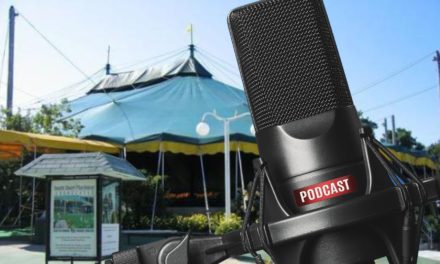By Dolores Sauca Lorusso
Genealogy trips focus on family connections here in the present and those in the past. When embarking on a heritage tour, one is encouraged to open his or her imagination to the possibilities of who their ancestors were and how they contributed to life in their own corner of the world.
Trips exploring heritage and ancestry are a growing niche as consumer DNA kits and digitized genealogical records have become more accessible. Lonely Planet and Airbnb report within the last five years, there has been a 500% increase in the number of guests visiting places connected with their ancestry.
Nancy Wells of Hull, a travel and cruise consultant at Experience Travelz, agrees.
“It is an up and coming trend…more and more people are seeking answers to their lineage questions” by booking both private and group tours, as well as cruises that are “geared to assist people in their ancestral quests,” she said.
Heritage and ancestry tourism is defined by the National Trust for Historic Preservation as “traveling to experience the places, artifacts, and activities that authentically represent the stories and people of the past and present.” For instance, on this type of trip you may visit the town from where your grandparents emigrated.
However, the enjoyment derived from learning about your roots does not start with just the trip. It can begin with research that commences years before you even pack a bag. A couple of decades ago, if you wanted to dig into your family’s history, you had to pay a hefty sum to a professional genealogist to delve into your family’s background to assemble the puzzle pieces.
Today, to take the first step in planning your own ancestry trip, you can simply order a DNA testing kit online. Ancestry DNA, 23andMe, MyHeritage, and Living DNA are popular brands, with prices ranging from $100 to $200, depending how detailed you would like your results.
Your DNA test results can help you plot the first point on the map as you begin to lay out the coordinates of your trip. Just remember the “golden rule” of genealogy is to start with yourself and work backward one generation at a time. You are just one bud on your family’s family tree.
If DNA tests are not your thing, there are other ways to research your history, such as talking to older family members whose stories can lead you to libraries or museums to find more information. The desire to connect to our roots has turned genealogy into the second favorite hobby of Americans next to gardening.
Jackie Hogan, a sociology professor and author of the book “Roots Quest,” says it is “a mistake to show up in your ancestor’s village with a vague plan to knock on doors hoping to find people who knew your relatives.” She explains to get the most out of your experience, you need to do most of your research before you step on a plane. Her suggestion is you identify a local contact, a family member, or a guide to help you when you arrive.
Genealogy travel offers an “immersive” travel experience because visitors can connect to the broader history and culture of their ancestral country. Exploring genealogy opens one’s eyes to look at their own life in a new light. Often with this type of travel, you can meet with relatives to gain an inside perspective to local life and that of your ancestors.
Staying at a guest house or bed and breakfast owned by locals will offer more of a peek into the lives of the people who live where your ancestors once lived. A trip back to your ancestor’s homeland can be life-altering. There is an exhilaration that comes from walking your ancestor’s street, sitting in a pew at their church, seeing where they went to school, or standing in their childhood home.
When you retrace the footsteps of the people who helped shape your identity, you can better understand the stories and people of the past that define a considerable portion of what makes you who you are today.
On a recent trip to Hawaii, my husband, our two grown daughters, and I were able to visit the house in Honolulu where my husband’s grandparents lived while his grandfather was stationed there. During his time in Hawaii, he worked on the USS Arizona as a pipefitter, making the railings on the ship. By the grace of God, he was sent home just one day before the attack on Pearl Harbor.
It was an awestruck feeling standing on the bridge at the USS Arizona Memorial, knowing my husband’s grandfather and our daughters’ great-grandfather had a hand in building that ship, not to mention the feelings of gratitude for all the men who died there, and that Anthony Lorusso, for whom my husband is the namesake, lived to carry on the family tree.
Our family also walked the beach at Waikiki and imagined Anthony and his wife, Lillian, had once walked that same path as newlyweds. It was neat to think their feet had once made footprints in the sand on that same beach and their eyes once gazed upon an equally amazing sunset.
Following the advice of Jennifer Utley, director of research at Ancestry.com, we read nonfiction historical accounts, along with some historical fiction, to get a sense of the time and place when Anthony’s grandparents were there.
Sometimes connecting to a piece of your family’s heritage may just mean a train ride. My father and mother were married in St. Leonard’s church in the North End, and I enjoyed going there with my Dad as a young child to see the church, and then bringing my husband, and later our daughters there. My mother died when I was three, but it was meaningful to be standing in a place that was a big part of her and my Dad’s story.
Truly unforgettable trips, whether near or far, are the ones that feel meaningful. Traveling along the path of the roots of your family tree can enrich your life in a long-lasting way, creating a connection with your legacy.
Genealogy helps to keep your family history alive. The exploratory process helps you to uncover the answers to questions you wish you had asked your parents or grandparents while they were alive. With heritage travel, you can “mine” for some of your family’s historical accounts and pass them on, so future generations can look back to uncover nuggets of wisdom.
Learning about your family’s past can help people to connect more deeply with themselves by learning who their ancestors were, where they came from, what their profession was, the challenges they encountered, and the achievements they made.
There is nothing like walking in the footsteps of your ancestors to make you feel truly connected in the world. Forge ahead on to your trip with the goal of taking in the sights and sounds of the place your ancestors once inhabited and you will not be disappointed.





